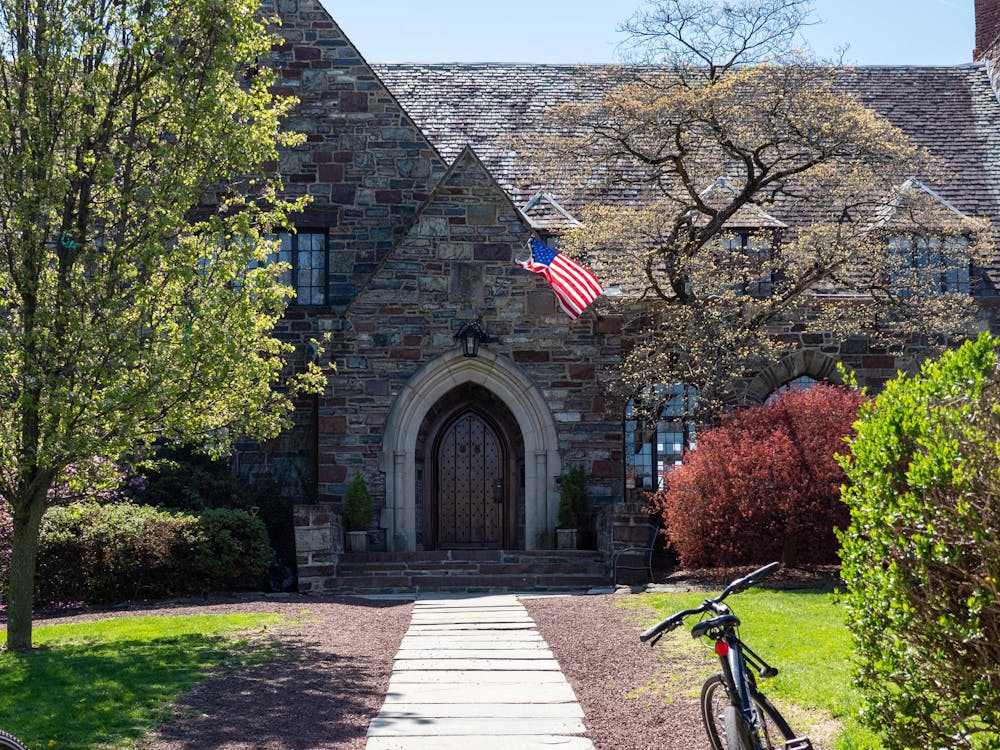The share of Princetonians who graduate as members of sign-in clubs has halved since the 1990s, reflecting a long-term decline in sign-in participation. In light of this trend and Cloister’s dire financial situation, the question of what allows an eating club to succeed is an important one.
Eating clubs are the most prominent exclusive social organizations on campus. Unlike other groups on campus defined by shared activities, eating clubs must rely on developing a strong culture, often through categorizing Princetonians to bind their members together. For a club to thrive, it needs to have a distinctive identity.
Bicker clubs derive their identity from the Bicker process — they are defined by who they exclude. Sign-in clubs lack this tool for differentiating themselves, and therefore must be more deliberate in cultivating their culture through other means. The best clubs lean into their sign-in identity and are able to create a community centered around openness and inclusivity. Most essential to this is making sure that the sign-in clubs establish an identity that is distinct from Bicker. Charter Club and Cloister Inn have each failed to do this but in different ways. Charter, by embracing selective sign-in, and Cloister, by tying its identity to its opposition to Bicker, have each failed to carve out this identity.
Moving away from a sign-in identity can come at a serious price. When Campus Club faced membership struggles in 2005, its graduate board pushed for it to revert to Bicker in a desperate attempt to drum up membership. In doing so, the club not only died — its identity as a club known at the time for “eschewing status-consciousness and social posturing, and for really thriving on diversity” was destroyed. In choosing to become Bicker, Campus Club gave up a fundamental part of its identity in order to chase trends — alienating its members and ultimately leading to its dissolution.
Charter Club faced a similar identity crisis in 2020, when its membership dwindled to just 52 members. Instead of implementing Bicker, the club tried to achieve a middle ground by instituting a policy of selective sign-in, which rewards prospective members for attending Charter events. The logic behind this policy was that it would allow the club to fairly allocate slots to members who ranked Charter first and fairly distribute the remaining spots. The points system thus ensured that those signing into Charter show some interest in the club.
While Charter’s goals in implementing this policy were admirable, in the wake of this year’s street week, it has become clear that Charter has become sign-in only in name. This year’s sign-in class reportedly needed to attend almost every event to gather the points needed to be admitted into the club, representing an enormous time commitment on the part of prospective members. While wanting to ensure some level of interest in the club is understandable, expecting sophomores to spend dozens of hours attending street-week events is unreasonable. While selective sign-in does avoid some of the fanaticism of Bicker, it requires a time commitment to one club that is incompatible with an open and inclusive community.
While Charter is chronically oversubscribed, Cloister suffers from the opposite problem. Cloister is unambiguously a sign-in club, yet its identity is tied up with Bicker as evidenced by its slogan: “FBDB” (Fuck Bicker Drink Beer). The slogan is present not only in the club’s Instagram bio, but also as the subject line to the email welcoming new members to Cloister on Friday, Feb. 9. Cloister traditions reinforce its captivation with Bicker. On the Thursday of Bicker Week, members dressed up as “knights” and attempted to charge into Bicker clubs, yelling “FBDB” to interrupt the last night of Bicker discussions.
This demonstrates how Cloister’s identity is developed around negativity toward Bicker clubs rather than a positive conception of itself. Cloister’s views on Bicker coincide with the club’s low yield rates, such as last February when Cloister offered 86 spots to new members, but only 18 were listed as members in November. As reported in the ‘Prince,’ Cloister is on the brink of closure, and in the past months, much ado has been made over the fate of Cloister Inn and its efforts to revive its membership through a takeover. Ultimately, if Cloister is to survive, it must embrace its sign-in identity and stop obsessing over Bicker because students likely want to be part of an environment defined by a club’s positive attributes, and not just anti-Bicker antagonism.

Cloister and Charter have cultural problems stemming from their relationship with Bicker. Charter’s selective sign-in has bred a quasi-Bicker culture in a sign-in club that recreates the toxicity inherent in the Bicker process. Cloister is at risk of closure and at the same time has failed to establish an identity that is not tied to vehement opposition to Bicker. While these clubs' financial and social situations are very different, their ties to the Bicker process are fundamentally detrimental to their culture in the long term.
Thomas Buckley is an Associate Opinion Editor from Colchester, Vermont, majoring in SPIA. He can be found feeling smug about his decision to sign into Quad or at thomas.buckley[at]princeton.edu.









